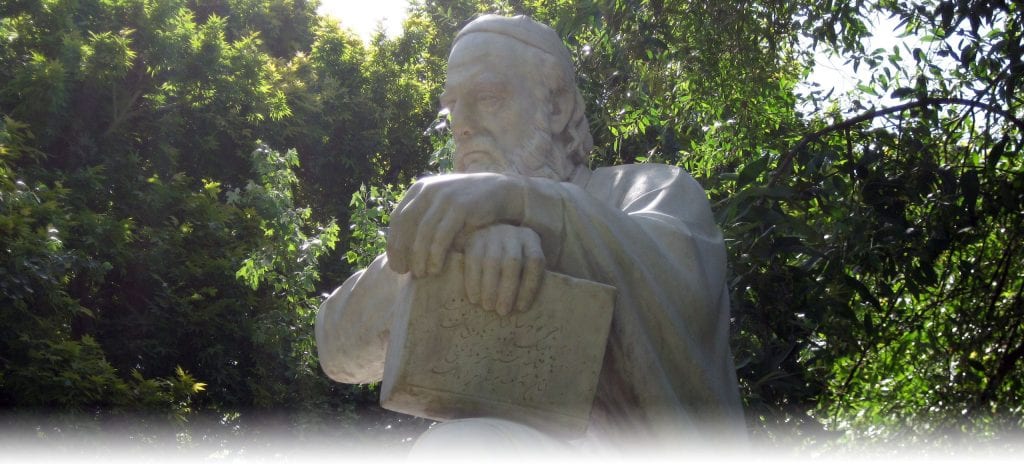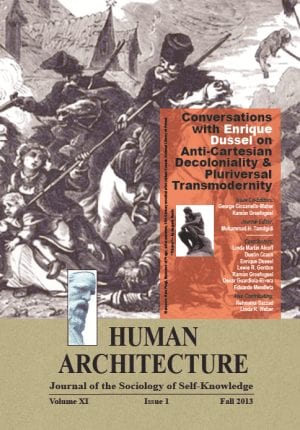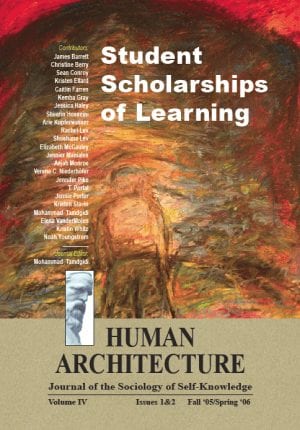Journal Article — The Voice of a Country of Called ‘Forgetfulness’: Mahmoud Darwish as Edward Said’s “Amateur” — by Rehnuma Sazzad
$15.00
This is a study of two close friends: Edward Said and Mahmoud Darwish—cosmopolitan and humane Palestinians who were fellow compatriots in the fight for the Palestinian cause. Both resigned from the PLO in the wake of the Oslo Accord as a sign of protest to the agreement. However, this was mostly true on Said’s part. Darwish said he was a poet; of what use was politics to him? This paper tries to answer this question by exploring the dynamic interplay of poetry and politics in what Said would call Darwish’s ‘amateurism.’
Description
Abstract
“The Voice of a Country of Called ‘Forgetfulness’: Mahmoud Darwish as Edward Said’s ‘Amateur'”by Rehnuma Sazzad is a study of two close friends: Edward Said and Mahmoud Darwish—cosmopolitan and humane Palestinians who were fellow compatriots in the fight for the Palestinian cause. Both resigned from the PLO in the wake of the Oslo Accord as a sign of protest to the agreement. However, this was mostly true on Said’s part. Darwish said he was a poet; of what use was politics to him? This paper tries to answer this question by exploring the dynamic interplay of poetry and politics in what Said would call Darwish’s ‘amateurism.’ Said’s ‘amateur’ is an intellectual who remains extraordinarily committed to truth and justice through all her/his efforts. An ‘amateur’s’ relentless task is to ‘speak truth to power.’ In order to perform the task, s/he combines the traits of Gramsci’s ‘organic intellectual’ and Benda’s ‘cleric’ in her/himself. Like the organic intellectual, s/he persistently challenges hegemonies through advancing progressive ideas and as a Bendaesque moral force, s/he acts against all kinds of subjugations and aggressions. The author argues that an ‘amateurish’ breaking of barriers took place when Darwish the poet turned into a Palestinian spokesman out of his passion to speak truth to the occupying Israeli power. Consequently, his art and his politics of universal human freedom vis-à-vis Palestine became so inextricably interlinked that he started to fill football stadia with his poetry recitation. Whether he wanted it or not, politics thus became an integral part of Darwish’s artistic project.
Recommended Citation
Sazzad, Rehnuma. 2013. “The Voice of a Country of Called ‘Forgetfulness’: Mahmoud Darwish as Edward Said’s “Amateur”.” Pp. 115-126 in Conversations with Enrique Dussel on Anti-Cartesian Decoloniality & Pluriversal Transmodernity (Human Architecture: Journal of the Sociology of Self-Knowledge: Volume XI, Issue 1, 2013.) Belmont, MA: Okcir Press (an imprint of Ahead Publishing House).
The various editions of Conversations with Enrique Dussel on Anti-Cartesian Decoloniality & Pluriversal Transmodernity can be ordered from the Okcir Store and are also available for ordering from all major online bookstores worldwide (such as Amazon, Barnes&Noble, and others).




